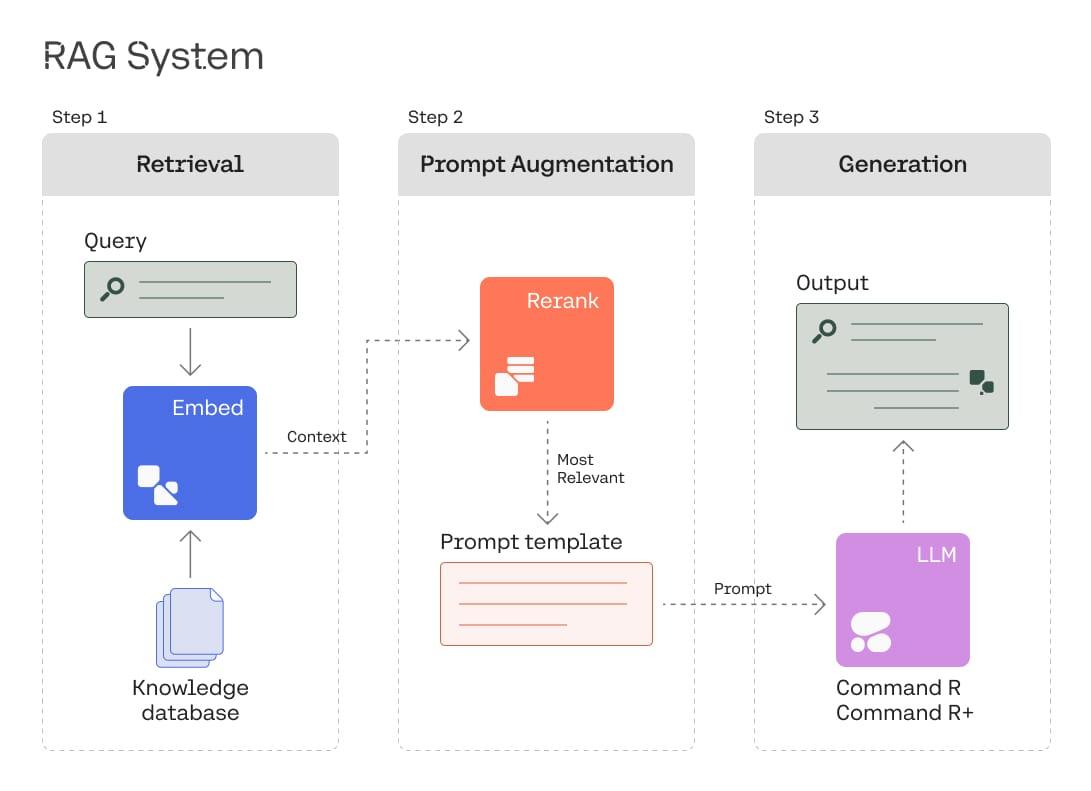Understanding the societal implications of generative AI technologies is crucial for anticipating and mitigating negative consequences while maximizing their benefits. However, there is currently no consensus on what constitutes the social impact of any AI system. Last week, the ACM FAccT Conference brought together researchers and practitioners interested in fairness, accountability, and transparency in socio-technical systems. In this week’s Radical Reads, Head of Cohere for AI, Sara Hooker, and Ellie Evans of Cohere introduce a new social impact framework for generative AI systems that they are co-developing.
Cohere For AI partnered with a team of cross-institutional researchers, including OpenAI and HuggingFace, to develop a Guide to Evaluating Social Impact of Generative AI Systems which proposes a framework for identifying and quantifying social impacts of generative AI. The framework describes specific social impact categories and methods for evaluating base technical systems, as well as impacts across people and society. Categories of social impact include bias, stereotypes, representational harms; cultural values and sensitive content; privacy and data protection; environmental costs, and several others.
A forthcoming social impact evaluation repository will soon accompany the guide as a helpful resource for model developers.
This initiative is just one of the many ways Cohere For AI is paving the way for responsible AI development, including Aya, which seeks to bridge the gap and provide access to cutting-edge machine learning research for under-represented languages.
Read the preprint paper. Cohere For AI is the non-profit research arm of Cohere that seeks to solve complex machine learning problems. The lab supports fundamental research that explores the unknown, and focuses on creating more points of entry into machine learning research. Learn more.
AI News This Week
-
Aidan Gomez: AI threat to human existence is ‘absurd’ distraction from real risks (Financial Times)
Aidan Gomez, co-founder and CEO of Radical Ventures portfolio company Cohere, discusses the potential benefits and risks of generative AI. Aidan was a co-author of the paper that announced the development of Transformers – the “T” in “GPT.” Aidan envisions AI models becoming the dominant method for tasks and digital interactions, serving as personal assistants. He acknowledges the early stage of AI technology, emphasizing the need for human involvement in critical areas like healthcare. He addresses reliability challenges and proposes retrieval augmentation as a solution to concerns about AI-generated text hallucinations. Aidan rejects the idea of a six-month AI development pause and criticizes fearmongering surrounding superintelligent AI taking over humanity as a distraction from addressing real risks that require attention now.
-
Oracle is betting its AI future on a company called Cohere. Here’s why this startup is becoming OpenAI’s chief rival (Business Insider)
Oracle partnered with Cohere as it emerges as a leading competitor to OpenAI. Cohere specializes in serving enterprise customers, offering them the ability to train their own generative AI models using proprietary data while ensuring privacy. Unlike OpenAI, Cohere takes a more privacy-centric approach. Oracle plans to integrate Cohere’s generative AI technology into its products, leveraging Oracle’s cloud for model training and deployment. The partnership is drawing parallels to Microsoft’s investment in OpenAI, although key differences include that Cohere remains cloud agnostic and has not licensed its technology exclusively.
-
Silicon Valley confronts the idea that the ‘Singularity’ is here (New York Times)
The Singularity is a long-debated idea in Silicon Valley. For some, it is the idea that humans will enhance their intelligence with computer processing power bringing about a time of abundance and positive change; for others, it is a moment when computers become super intelligent, leading to exponential and irreversible changes. Silicon Valley’s fascination with apocalyptic scenarios and the concept of transcendence is not new, but the development of LLMs has fueled the Singularity discourse. Critics argue that the current capabilities of AI fall short of the grand vision, while others acknowledge the potential for transformative technological advancements and associated challenges.
-
The people to watch in Canadian AI (The Logic)
In the highly networked world of AI talent, Canadian pioneers like Geoffrey Hinton, Yoshua Bengio, and Richard Sutton continue to wield significant influence. In recent years, however, a new generation of pioneers have emerged in Canada to advance the field’s foundations and the adoption of the technology. Notably, entrepreneurs are leveraging their expertise to introduce this technology to both corporations and consumers, with the support of domain-trained investors. Noted Radical Ventures portfolio companies included: Cohere’s founders for their use of generative AI to add machine-made text to products and services. Charles Onu’s startup Ubenwa, which applies AI to analyze infant cries for health insights. As well as, Martin Snelgrove and Arun Iyengar, who are developing AI-specific semiconductors at Untether. Jordan Jacobs, Radical Ventures Managing Partner and Co-Founder, is the only VC included on this list, noted for the fund’s belief that AI will replace all software within the next decade.
-
AI Spotlight: The economic potential of generative A – The next productivity frontier (McKinsey)
Generative AI has the potential to significantly enhance the global economy by contributing approximately $4.4 trillion each year – approximately 4.4% of the total economic output. For perspective, the entire GDP of the United Kingdom in 2021 was $3.1 trillion. The report further predicts that about 75% of the value created by generative AI use cases will be realized in key areas such as customer operations, marketing and sales, software engineering, and R&D. This impact will be substantial across various industry sectors, particularly in banking, high tech, and life sciences, where the proportion of revenues derived from generative AI is expected to be significant in the near future.
Radical Reads is edited by Leah Morris (Senior Director, Velocity Program, Radical Ventures).





